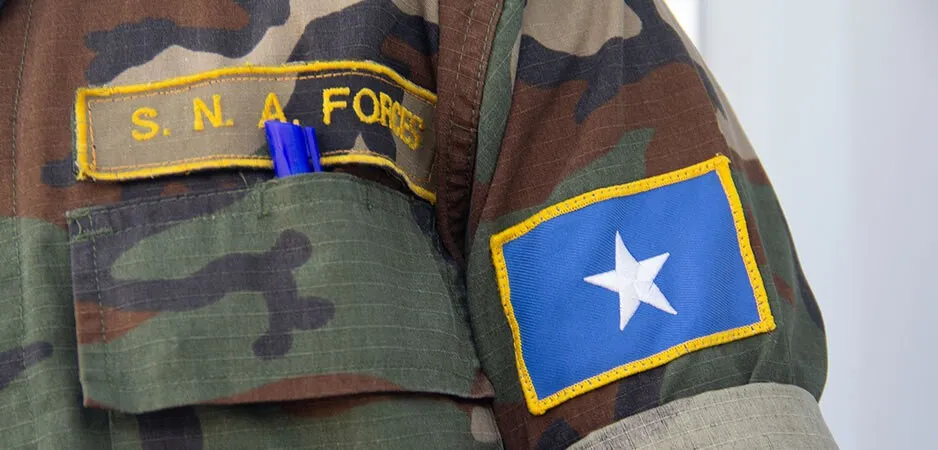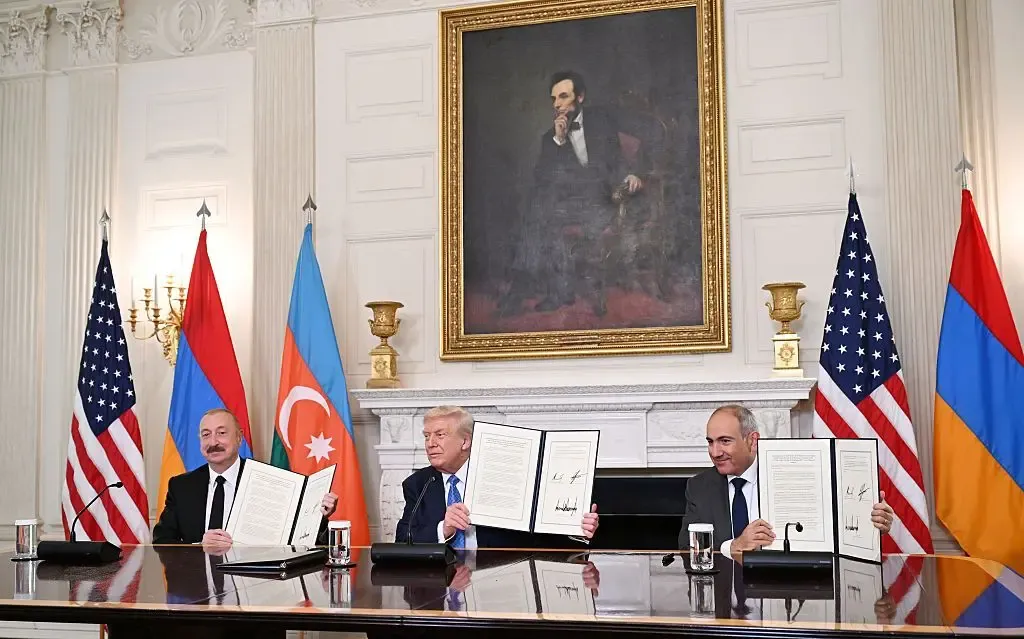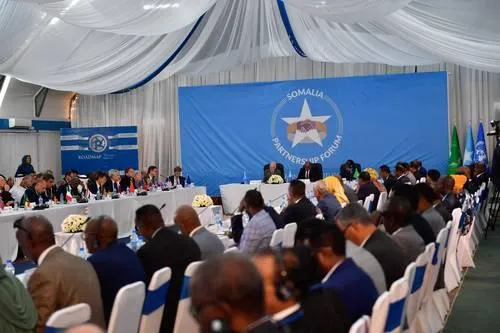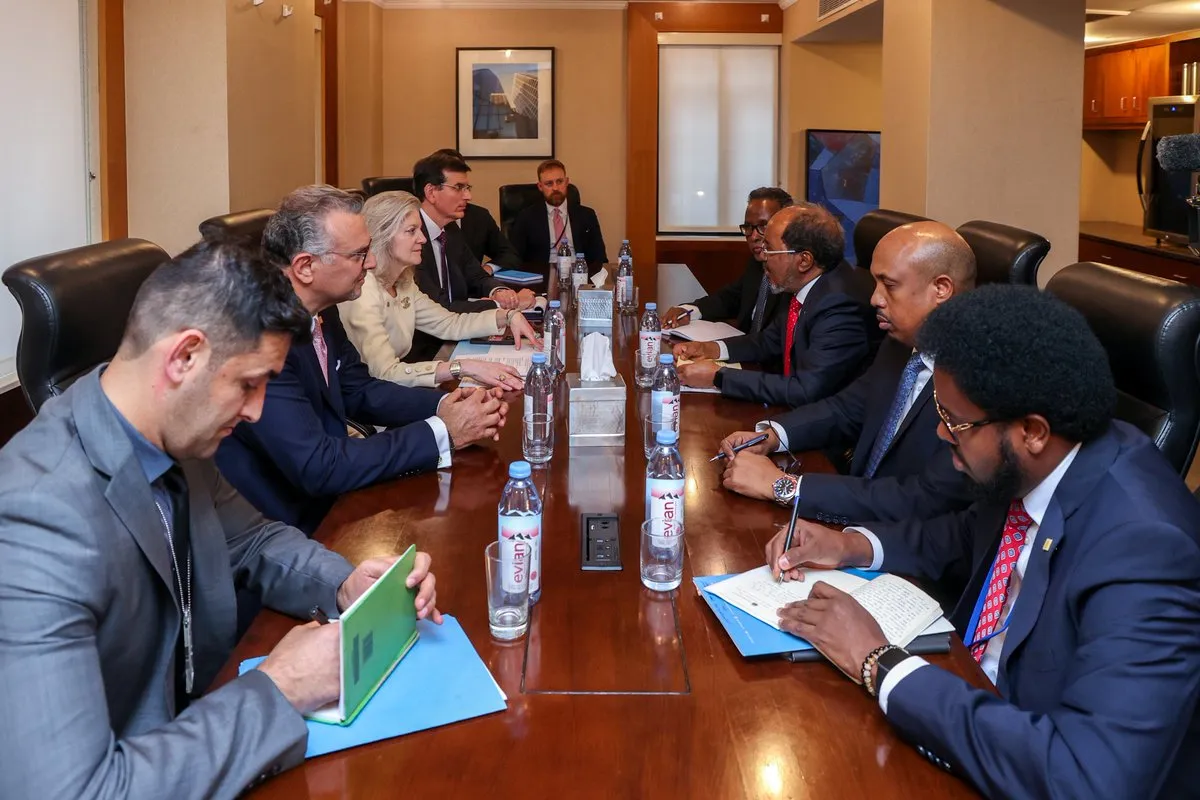Table of Contents
For more than 20 years, Somalia has been caught in a web of military agreements with foreign powers, each claiming to bring peace, stability, and an end to terrorism. These deals, often touted as the solution to Somalia’s insecurity, have produced little in the way of meaningful results. Instead, they have entrenched the country's reliance on foreign troops, fostered extremism, and drawn Somalia deeper into geopolitical rivalries that serve external interests more than its own.
The beginning of this trajectory can be traced back to Ethiopia’s military intervention in 2006. Ethiopia entered Somalia under the guise of supporting the Transitional Federal Government (TFG) against the Islamic Courts Union (ICU), which had seized control of southern Somalia. While Ethiopian troops managed to topple the ICU, this move directly contributed to the rise of al-Shabaab. What was intended to be a stabilizing effort turned into a catalyst for a far more dangerous insurgency. Al-Shabaab capitalized on local resentment against Ethiopian forces, portraying itself as the defender of Somali sovereignty. Instead of peace, the Ethiopian intervention ignited a prolonged conflict, the effects of which Somalia continues to endure.
At the same time, the United States increased its involvement, primarily through counterterrorism efforts targeting al-Shabaab. From 2007 onwards, U.S. airstrikes, particularly drone attacks, aimed to eliminate key leaders of the militant group. While some of these operations were successful in neutralizing high-profile targets, they also caused significant civilian casualties. These unintended consequences only fueled further extremism, as civilian anger over the strikes helped al-Shabaab recruit more fighters. The U.S. focus on counterterrorism neglected broader issues such as state-building, leaving the Somali government too weak to stand on its own.
In response to Somalia’s growing insecurity, the African Union Mission in Somalia (AMISOM) was launched in 2007. Supported by Uganda, Kenya, Burundi, and Ethiopia, AMISOM helped recapture major urban centers from al-Shabaab, including Mogadishu. However, despite its achievements, AMISOM failed to eradicate the insurgency, which shifted its operations to rural areas. Foreign troops remain essential to maintaining order, underscoring the Somali government's inability to build an independent military force capable of defending the country. As AMISOM’s mandate has repeatedly been extended, it has become clear that Somalia’s reliance on external forces has not diminished, raising questions about the long-term sustainability of this arrangement.
One of the most significant actors in Somalia during this period has been Turkey. Starting in 2011, Turkey began providing both humanitarian aid and military support. By 2017, Turkey had opened its largest overseas military base in Mogadishu, where it trained Somali forces. Turkey’s involvement has been viewed more favorably than other foreign interventions, largely because it combined military assistance with development aid. However, Turkey’s growing influence has drawn Somalia into the broader geopolitical rivalry between Turkey and Gulf states like the UAE, which have competing interests in the Horn of Africa. While Turkish support has undoubtedly helped the Somali government build capacity, it has also tied Somalia to Ankara’s strategic ambitions in the region.
Not all foreign interventions have been welcomed. In 2014, Somalia signed a military agreement with the United Arab Emirates (UAE), which provided training and equipment for Somali security forces. However, relations soured after Somalia chose to remain neutral in the Gulf crisis between Qatar and its Gulf neighbors, including the UAE. The UAE suspended its military support in 2018, and tensions escalated when the Somali government accused the UAE of meddling in its internal politics. The fallout from this agreement illustrates how foreign military engagements often serve the geopolitical interests of external actors rather than advancing Somalia’s long-term security goals.
Throughout these decades, one pattern has remained consistent: successive Somaligovernments have entered into new military agreements without evaluating the failures or successes of previous ones. There has been little effort to assess whether these pacts have produced tangible results in terms of building a self-reliant Somali military or securing long-term stability. Instead, each government has continued to sign new deals, often without consulting the public or providing transparency on the details of these agreements. This lack of accountability has meant that foreign military assistance often continues without scrutiny, even as Somalia remains deeply unstable.
Somalia’s public remains largely unaware of the full implications of these military agreements. With little transparency, there has been no clear communication about how these deals affect national sovereignty, or whether they are truly in Somalia’s best interest. The agreements often reflect the priorities of the foreign powers involved — whether it’s counterterrorism for the U.S., regional dominance for Ethiopia, or geopolitical positioning for Turkey and the UAE. In contrast, Somalia’s primary concerns, such as building a cohesive national army, promoting internal stability, and addressing local grievances that fuel extremism, have taken a backseat.
The true beneficiaries of these agreements are often the foreign powers themselves. Ethiopia, for instance, used its intervention in 2006 to assert its dominance in the Horn of Africa, while the United States focused on its global counterterrorism strategy. Turkey has strengthened its foothold in the region, while the UAE has leveraged its support for autonomous regions like Puntland and Somaliland to expand its influence. For these countries, Somalia is a strategic asset in their broader regional ambitions, rather than a partner in building sustainable peace.
For over two decades, Somalia has been locked in a cycle of foreign military agreements that have failed to deliver lasting peace. While some interventions have helped push back al-Shabaab and secure key areas, none have addressed the underlying issues that perpetuate instability. Successive Somali governments have entered into these agreements without learning from past mistakes, and without providing the transparency necessary for the Somali people to understand their full impact. As a result, Somalia remains a battleground for both foreign forces and regional rivalries, with little progress toward a stable, self-sufficient future.
Without a serious reassessment of these military pacts and a commitment to transparency, Somalia risks remaining trapped in a cycle of dependency and conflict. The future of Somalia’s security cannot be built on the shifting interests of foreign powers. It must be rooted in Somali ownership of its military and a genuine effort to address the root causes of extremism.








